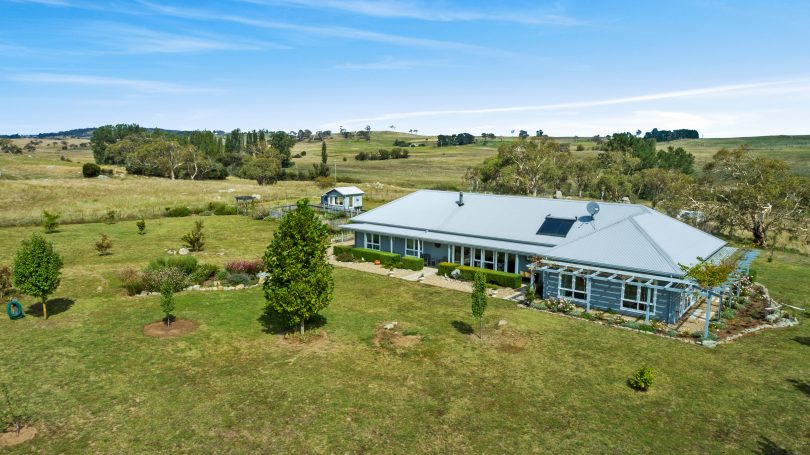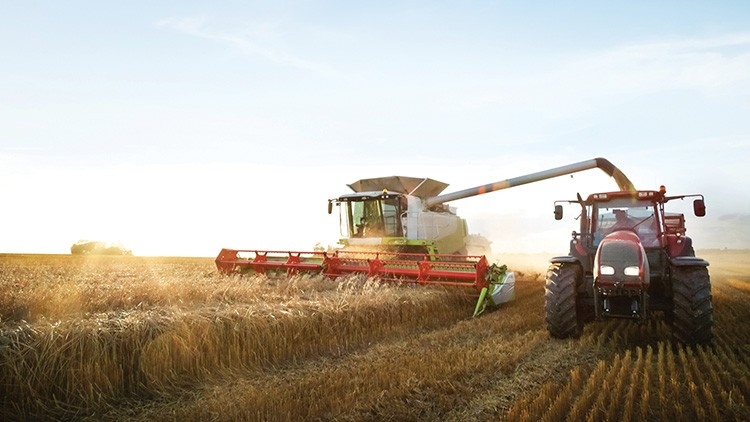
A rural property on Nerriga Road, Braidwood, recently sold for a record price of $1.58 million within 24 hours of listing. Photo: Belle Property Braidwood.
Many farmers are jumping at the chance to get off the land while the going is good, but there’s growing concern for the future of Australia’s agricultural industry as rural properties are snapped up by city buyers seeking a country retreat.
A surge in rural land values – driven by low interest rates, strong commodity prices, farm consolidation and fewer farms for sale – has led to a mix of excitement and nervousness in the agricultural industry.
ANZ head of agribusiness Mark Bennett said rural land values have been growing strongly for a number of years, including throughout the recent drought, but while it has been a boom for farmers, there is some nervousness about what it could mean for the industry.
“Sustained, stellar growth in rural property prices is boosting farmers’ balance sheets and prompting many farmers to expand their operations in light of the low interest rate environment, however this also appears to be attracting investment from outside the traditional farm buyers,” he said.
“Additional demand is growing from investors and international buyers who are seeing value in rural property; city dwellers looking to purchase their piece of regional lifestyle; and investors looking for environmental driven outcomes.”
During the past 12 months, farmers have benefitted from strong commodity prices and good seasonal conditions, and as a result not many are looking to sell, leading many people in the industry to believe the surge in land values is being driven by a lack of properties being offered for sale.
Ray White Rural Canberra/Yass sales agent George Southwell said the “resurgence in the bush is here”, however he encourages people to “think positively and be open to change”.
“We normally see farmers ride out the good years only to sell when needing to due to hard times and when prices are less per acre. Not making this mistake this time around would be a great advantage and could lead to being significantly better off.
“This opportunity may be missed due to another drought or hard time if it is not grabbed with two hands now.”
Mr Southwell said while there has been a genuine increase in buyer activity towards rural holdings, buyers are from both traditional farming and non-farming backgrounds.
“Most properties we have seen change hands above the 200-acre mark have actually been sold to generational family farmers, while properties under 200 acres in size have been attracting buyers from the cities,” he said.
“It is fair to say that most genuine income-producing farms have been sold to family farmers.”
Mr Southwell said city and overseas investors bring much-needed funds and energy to regional towns and communities.
“[Plus] a desire to hire contractors and permanent staff due to a lack of experience and time to do the hands-on work themselves,” he added.
Belle Property Braidwood real estate and stock and station agent Kelly Allen said there has been “extremely high demand” from Sydneysiders seeking a rural escape.

Demand for Australian rural property is growing from investors and international buyers who are seeing value in agricultural land. Photo: ANZ.
In the regional area around Braidwood, she said rural blocks have “all but doubled in value” during the past four years.
“Bush blocks that sold for $200,000 are now selling for $400,000-plus, while grazing blocks that sold for $350,000 are now achieving $6000-$7000 per acre, equating to $600,000 for a 100-acre grazing block,” said Ms Allen.
She said Braidwood locals have been surprised by prices being achieved for lifestyle blocks where the land is part-bush and part-grazing with a good homestead.
“Properties which were selling at $900,000 three years ago, are now selling for $1.4 million-plus depending on the quality and size of the homestead on offer,” said Ms Allen.
“Most of these buyers are coming from city dwellers looking for a holiday home or relocating away from the city and working from home.”
Ms Allen recently sold a rural property on Nerriga Road, Braidwood, for a record $1.58 million within 24 hours of listing it for sale.
The buyers were an executive couple from Sydney who plan to enjoy the country life and login to work from home.
“There are also the city dwellers simply looking for a getaway block to camp, ride motorbikes and just escape the city,” said Ms Allen.
With the gap between the value of farm production and overall rural property values continuing to grow, agribusiness is warning farmers and investors to consider the potential implications longer term, as well as what it could mean for Australia’s overall agricultural output.
Original Article published by Katrina Condie on About Regional.







